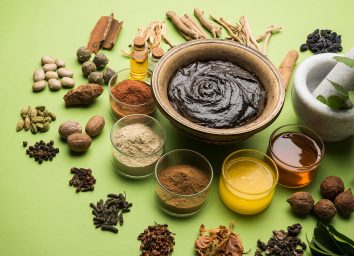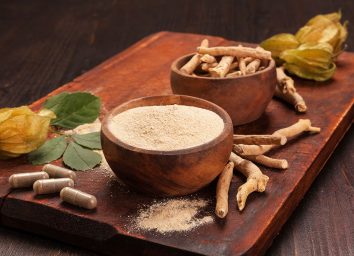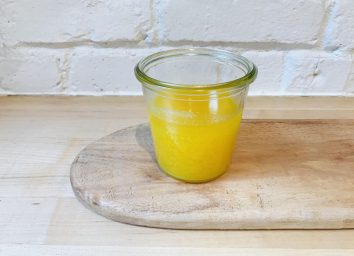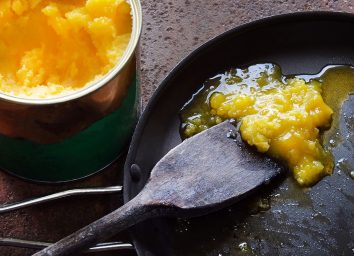Gotu Kola: The Surprising Health Benefits of This Medicinal Herb
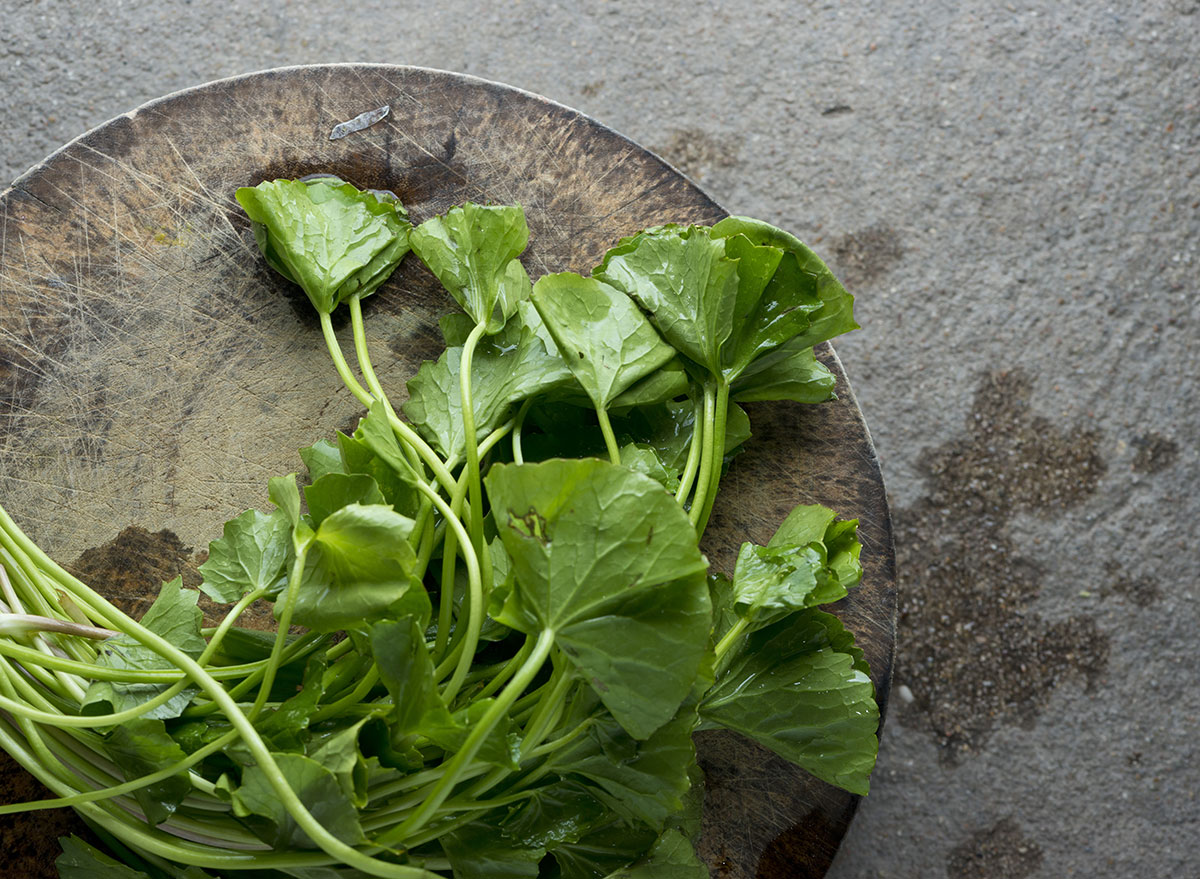
Unless you’re a naturopath or herbalist yourself, chances are you haven’t heard of gotu kola.
But according to plant-based health coach Summer Sanders, author of Raw and Radiant and founder of Local Juicery in Arizona, it’s time that changed. “Not only has it been used by Ayurvedic and traditional Chinese practitioners for thousands of years as a health booster, it’s now being scientifically studied, and the results are encouraging,” she says.
So, what exactly is gotu kola and what makes it so special? To find out, we spoke to Sanders; a traditional Chinese practitioner, Irina Logman owner of Advanced Holistic Center in New York City; and registered dietician Edwina Clark, MS, RD, APD (Aus), CSSD.
What is gotu kola?
Gotu kola goes by several different names: marsh penny, Indian pennywort, tiger grass, the longevity herb, Centella asiatica, and ji xue sao brahmi. If you saw this herb-of-many-names in your kitchen, you’d probably assume it was parsley. The small leafy plant is traditionally grown in India, Indonesia, and Asia, and has been used in traditional Chinese medicine and Ayurvedic medicine for thousands of years, according to Sanders.
While the herb can be used as a garnish (just like parsley), gotu kola is typically consumed for its health benefits as a tincture, tea, extract, powder, or capsule.
What are the health benefits of gotu kola?
Among plant-focused nutritionists and health practitioners, gotu kola is thought to have memory-enhancing, anti-anxiety, anti-depressant, and anti-aging benefits.
It is good for your brain
“Gotu Kola has been long used to help with memory function and improve brain health,” says Sanders.
In one 2016 study published in the journal Evidence-Based Complementary and Alternative Medicine, researchers split participants into three groups: those who received 1,000 milligrams per day, those who received 750 milligrams of gotu kola, and those taking 3 milligrams of folic acid, which is a nutrient well-known for its brain-boosting benefits. After six weeks, all three groups showed a boost in cognitive function—suggesting that the herb may be as effective as folic acid at improving cognitive functioning. But only the group taking gotu kola showed improved memory, which suggests the herb is potent in supporting overall brain health.
Sanders adds that due to its memory-aiding ability, gotu kola is being studied as a treatment for Alzheimer’s. “The only research study on the topic thus far as been done on animals, but the results are promising,” she says.
It may improve mental health
If there was one plant that could reduce signs of anxiety and depression, you’d probably take it, right? Well, according to Logman, that plant might be gotu kola.
“The herb is thought to have anti-anxiety and antidepressant qualities,” she says. That’s what researchers found in a 2016 study published in The Malaysian Journal of Medical Sciences, when they gave people with generalized anxiety disorder gotu kola for sixty days. At the end, every individual reported reduced symptoms of stress, anxiety, and depression.
While promising, if you’re experiencing symptoms of mental strain, reach out to a mental healthcare provider before adding gotu kola to your wellness stack—especially if you’re currently taking anxiety medication. Gotu kola may interfere with its effectiveness.
It may reduce signs of aging and stretch marks
Things like pollution, cigarette smoke, alcohol, and radiation expose our bodies to things called free radicals, which have been shown to speed up aging and cause illness. But antioxidants—which gotu kola contains in spades—are thought to help neutralize the risk. “Gotu kola’s antioxidant properties help us fight signs of aging,” says Sanders, who adds that it may even be used to reduce the appearance of cellulite and stretch marks.
It may improve circulation
Whether you have varicose veins or experience ankle swelling after a flight, you’ll be happy to learn that gotu kola is thought to reduce ankle swelling. In a 2001 study, researchers tasked half the participants with taking gotu kola before, during, and after a flight, and found that those who did experienced reduced ankle swelling compared to those who didn’t take it.
Potential side effects of gotu kola
According to Clark, gotu kola is generally well-tolerated when taken daily for six weeks at a time. But she recommends checking in with your healthcare provider ahead of time, as it can interfere with the effectiveness of some prescribed medications, and is usually not recommended for women who are pregnant or breast-feeding.
The most common side effects are dizziness, upset stomach, or headache, but starting with a low dose and gradually increasing dosage over a month can help reduce the risk of side effects, she says.
How to start using gotu kola
Good news: You don’t have to hop on a plane to Asia to get some of this superfood. “It can be found in most health food stores in different forms such as tea, tinctures, dried herbs, capsules, and extracts,” says Sanders.
When purchasing gotu kola, it’s best to make sure it’s been tested by a third party to ensure the product is of premium quality and doesn’t contain any heavy metals or other pollutants that can get into the plant via contaminated soil.
Sander’s favorite gotu kola products are gotu kola capsules by Organic India and The Mind Brain Tonic by Anima Mundis, which is a powdered blend of several adaptogenic herbs known to support brain health. Clark recommends Wise One gotu kola capsules by Hundred. Other companies like Nature’s Answer and Gaia Herbs sell gotu kola supplements in liquid form, too.
“The scientific community has not reached a consensus about the optimal dosage of gotu kola,” says Clark, but 60 milligrams to 180 milligrams of gotu extract appears to be safe, she says.
